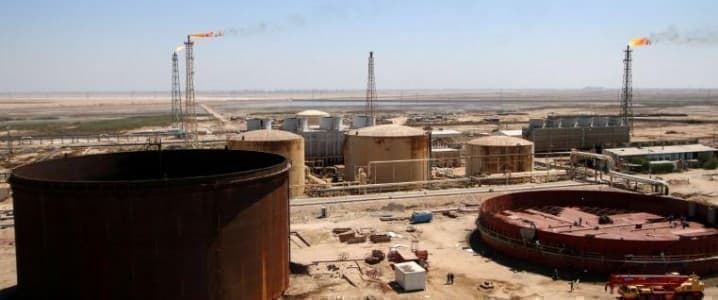It is not in Iraq's best interest to adopt renewable energy at the expense of fossil fuels, energy and oil expert Hamza al-Jawaheri told local Shafaq News Agency in an interview on Monday.
Iraq, OPEC's second-largest producer behind Saudi Arabia, has been suffering from power outages and disruptions due to a lack of investment in its transmission grids. Iraq also relies on electricity and natural gas imports from neighboring Iran for its power supply and has received waivers from the United States to continue importing electricity from Iran despite the American sanctions against Tehran.
"Iraq is an oil-producing country. It supplies 12% of the world's needs. It is not in its best interest to adopt renewable energy resources," al-Jawaheri told Shafaq News Agency.
"Iraq's economy is rentier that relies on oil to fund its treasury. Promoting alternative energy is not the optimal choice to address the power issue in Iraq," the energy analyst was quoted by the news agency as saying.
According to al-Jawaheri, solar energy installations are useless in urban areas, as well as "four times more expensive than fossil oil." Related: Oil Opens Lower As Delta Variant Fears Clash With Tight Supply
Ahead of the visit of Prime Minister Mustafa Kadhimi of Iraq to the White House on Monday, a senior U.S. administration official said that "we have a huge climate agenda with the Iraqis which I want to highlight. USAID funded technical assistance for renewable energy and climate adaptation with a figure — monetary figure I just can't announce yet."
Last month, Masdar, a subsidiary of Mubadala Investment Company of the United Arab Emirates (UAE), signed a strategic agreement with Iraq to develop solar photovoltaic (PV) projects in the country with a minimum total capacity of 2 gigawatts (GW).
"The Government intends to increase and enhance the national production of clean energy," Ihsan Abdul Jabbar Ismail, Minister of Oil for the Republic of Iraq, said in a statement in June.
"Iraq is targeting 20 to 25 percent of energy coming from renewable sources, rather than fossil fuels, equivalent to 10 to 12 GW. This agreement with Masdar, a global leader in renewable energy, is an important step in the development of the clean energy investment sector and the exploitation of solar energy in Iraq," the minister added.
By Tsvetana Paraskova for Oilprice.com
ADVERTISEMENT
More Top Reads From Oilprice.com:
- Top Oilfield Service Providers See Multi-Year Recovery Ahead
- Can Iran Avoid A Major National Uprising?
- U.S. Shale Sees Light At The End Of The Tunnel


















Renewable energy should be used to enable Iraq to replace the oil and gas used in electricity generation so as to release more oil and gas for export and also as part of combatting climate change.
With almost 95% dependence on the oil export revenue, there could never be a post-oil era for Iraq. Oil will continue to drive its economy well into the future, perhaps for ever.
The only diversification Iraq can pursue is to maximize the value of its huge oil assets by exporting part of its oil as crude and the remainder as petrochemical and refined products thus adding value to its assets and more revenue to its treasury.
Another measure is to expand its oil production capacity because it is destined to be one of the very few oil producers who will satisfy global demand for oil well into the future in if not the very last producer.
Dr Mamdouh G Salameh
International Oil Economist
Visiting Professor of Energy Economics at ESCP Europe Business School, London